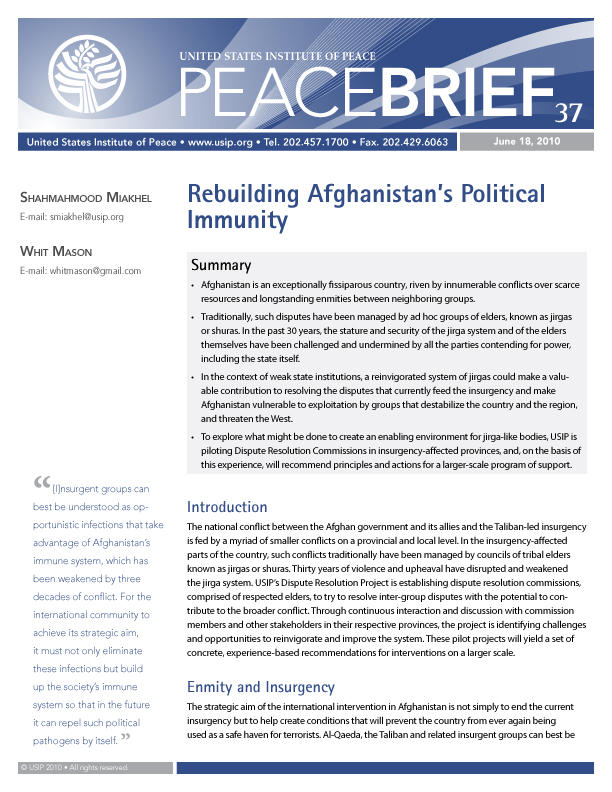Rebuilding Afghanistan's Political Immunity
Afghanistan is an exceptionally fissiparous country, riven by innumerable conflicts over scarce resources and longstanding enmities between neighboring groups. Traditionally, such disputes have been managed by ad hoc groups of elders, known as jirgas or shuras. In the past 30 years, the stature and security of the jirga system and of the elders themselves have been challenged and undermined by all the parties contending for power, including the state itself.

Summary
- Afghanistan is an exceptionally fissiparous country, riven by innumerable conflicts over scarce resources and longstanding enmities between neighboring groups.
- Traditionally, such disputes have been managed by ad hoc groups of elders, known as jirgas or shuras. In the past 30 years, the stature and security of the jirga system and of the elders themselves have been challenged and undermined by all the parties contending for power, including the state itself.
- In the context of weak state institutions, a reinvigorated system of jirgas could make a valuable contribution to resolving the disputes that currently feed the insurgency and make Afghanistan vulnerable to exploitation by groups that destabilize the country and the region, and threaten the West.
- To explore what might be done to create an enabling environment for jirga-like bodies, USIP is piloting Dispute Resolution Commissions in insurgency-affected provinces, and, on the basis of this experience, will recommend principles and actions for a larger-scale program of support.
About This Brief



